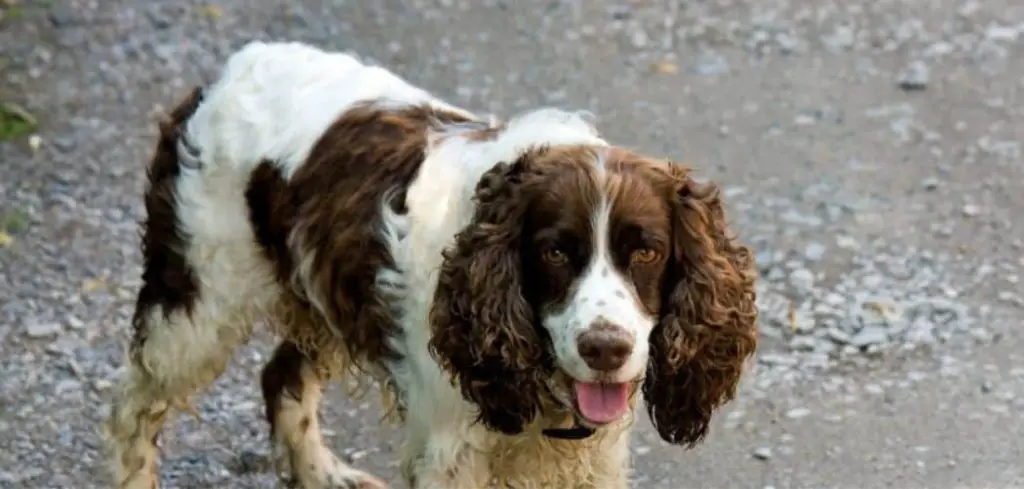It can be alarming to see your dog drooling excessively after munching on snow. While some dogs enjoy a playful romp in winter and nibble at the snow without issue, others may react in unexpected and concerning ways.
We outline the common reasons why excessive dog drooling after eating snow happens, what you can do at home, and when to seek veterinary help.
Table of Contents
Dog Drooling Excessively After Eating Snow — Why It Happens
A dog excessively drooling after eating snow can stem from cold-induced stomach upset, chemical irritants, or more serious medical conditions.
When dogs eat snow, they sometimes ingest harmful substances like road salt or antifreeze residue. The sudden temperature change can also irritate the stomach lining or trigger nausea.
In more concerning cases, drooling may be linked to toxins, dental issues, or gastrointestinal distress. Recognizing the underlying cause is crucial to prevent complications.

Dog Drooling Excessively After Eating Snow: Common Causes
Ingestion of Road Salt or De-Icing Chemicals
Many public spaces and driveways are treated with salt or chemical de-icers during winter.
If your dog licks snow that’s been treated, they may ingest these substances. This can lead to oral irritation, nausea, and gastrointestinal upset, all of which can trigger drooling.
You may also notice your dog licking their lips frequently, pawing at their mouth, or showing signs of restlessness.
Ingesting large quantities of de-icers can lead to salt toxicity, which is a medical emergency.
Read more: Dog Drooling and Not Eating (What it means and what to do)
Gastrointestinal Irritation from Cold Temperature
Cold snow can shock your dog’s stomach, especially if they consume large amounts quickly.
This temperature shock may lead to nausea, hypersalivation, and even vomiting. Dogs with sensitive stomachs or a history of digestive issues are more prone to this reaction.
Excessive drooling may begin within minutes of snow ingestion and be accompanied by signs like burping, abdominal discomfort, or pacing.
Antifreeze Exposure
Antifreeze (ethylene glycol) can contaminate snow in driveways, streets, or garages.
Even tiny amounts are highly toxic to dogs. The sweet taste attracts them, and once ingested, symptoms such as excessive drooling, vomiting, lethargy, and uncoordinated movements can appear quickly.
If you suspect your dog may have consumed antifreeze, treat it as an emergency and seek veterinary help immediately.
Dental Sensitivity or Injury
The coldness of snow or ice chunks can trigger dental pain or reveal pre-existing dental problems.
Dogs with cracked teeth, gingivitis, or exposed nerves may begin drooling excessively after eating something cold like snow. This type of drooling is often one-sided and accompanied by pawing at the mouth or refusal to eat.
A dental exam can help identify whether a fractured tooth or oral infection is the root cause.
Nausea or Motion Sickness
Some dogs experience a form of nausea or motion sickness after ingesting snow, especially during or after active play.
This can trigger hypersalivation, lip-smacking, and pacing. Dogs may also avoid food temporarily.
In these cases, the excessive drooling is often short-lived but may repeat if snow ingestion continues.
What to Do If Your Dog Is Drooling Excessively After Eating Snow
First, gently rinse your dog’s mouth with lukewarm water to remove any potential irritants like salt or chemicals.
Keep them calm and indoors where it’s warm, and monitor for additional symptoms such as vomiting, diarrhea, or lethargy.
Offer clean drinking water and observe if the drooling decreases over the next 30 to 60 minutes.
Avoid allowing further snow consumption until the cause is identified. If you suspect exposure to antifreeze or large quantities of road salt, do not wait—seek veterinary help promptly.
For dogs with sensitive stomachs or dental concerns, consider using pet booties or a snow-free play area in the future.
When to Call or Visit Your Vet
If your dog’s drooling continues beyond one hour, worsens, or is accompanied by other troubling symptoms, call your veterinarian.
Seek urgent care if you notice:
Vomiting or diarrhea
Lethargy or uncoordinated movement
Seizures or tremors
Refusal to eat or drink
Pale gums or rapid breathing
Excessive drooling paired with changes in behavior or physical discomfort may indicate a serious condition that requires professional attention.
Read more: Dog drooling diarrhea not eating (When it’s an emergency)
Key Takeaway
While it’s not uncommon for dogs to eat snow during winter play, excessive drooling afterward shouldn’t be ignored.
The cause could be as simple as a cold stomach or as serious as chemical toxicity or antifreeze ingestion.
Monitor your dog closely, rinse their mouth if needed, and never hesitate to contact your vet if symptoms persist or escalate.
By staying alert and cautious, you can keep your dog safe during snowy adventures.
